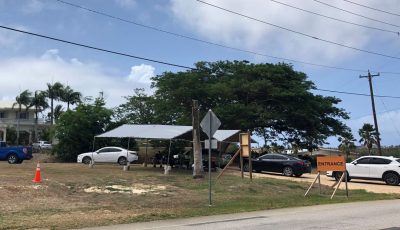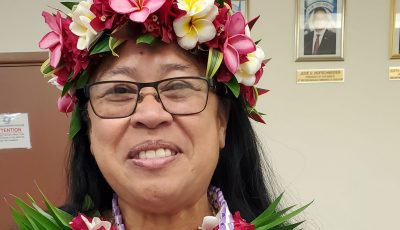Deadline to apply for emergency food and shelter funds is Monday
This Monday, Feb. 13, 2023, is the deadline to submit an application for public or private voluntary agencies that are interested in applying for Emergency Food and Shelter Program funds.
This comes soon after the CNMI was awarded $83,655 to allow it to support emergency relief efforts to supplement emergency food and shelter programs in the Commonwealth. The selection was made by a national board that is chaired by the U. S. Department of Homeland Security’s Federal Emergency Management Agency and consists of representatives from American Red Cross; Catholic Charities, USA; National Council of the Churches of Christ in the USA; The Jewish Federations of North America, The Salvation Army; and United Way Worldwide.
The NMI Local Board will determine how the funds awarded to the CNMI are to be distributed among the emergency food and shelter programs run by local service agencies. Qualifying agencies are urged to apply. Previously, the CNMI local Board has distributed these funds to the Karidat Social Services, Salvation Army, Empty Vessel Ministries, Team Koka (Tinian), The Ohala Foundation (Tinian) and Marianas Food Bank. These agencies were responsible for providing thousands of meals and hundreds of nights of lodging and utility assistance.
Those who want to help distribute these funds should contact John Hirsh at the American Red Cross-NMI Chapter at 234-3459 for an application. The deadline for applications to be received is 5pm on Monday, Feb. 13, 2023.
A CNMI board, made up of local community stakeholders, will determine how the funds awarded to the Commonwealth are to be distributed among the emergency food and shelter programs run by local service agencies. The local board is responsible for recommending agencies to receive these funds.
Under the terms of the grant from the National Board, local agencies chosen to receive funds must: 1) be private voluntary nonprofits or units of government, 2) be eligible to receive Federal funds, 3) have an accounting system, 4) practice nondiscrimination, 5) have demonstrated the capability to deliver emergency food and/or shelter programs, and 6) if they are a private voluntary organization, have a voluntary board. (PR)



























